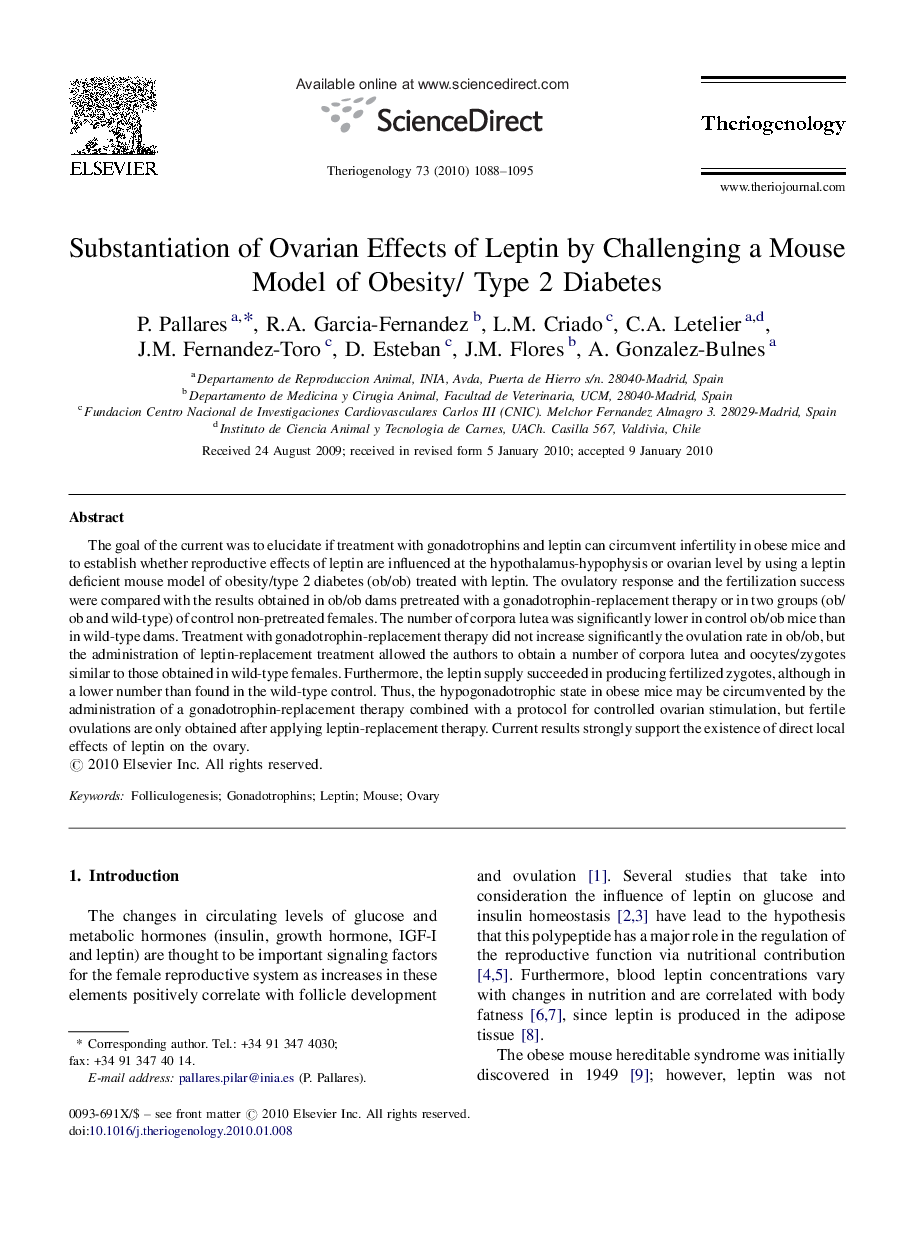| Article ID | Journal | Published Year | Pages | File Type |
|---|---|---|---|---|
| 2097898 | Theriogenology | 2010 | 8 Pages |
The goal of the current was to elucidate if treatment with gonadotrophins and leptin can circumvent infertility in obese mice and to establish whether reproductive effects of leptin are influenced at the hypothalamus-hypophysis or ovarian level by using a leptin deficient mouse model of obesity/type 2 diabetes (ob/ob) treated with leptin. The ovulatory response and the fertilization success were compared with the results obtained in ob/ob dams pretreated with a gonadotrophin-replacement therapy or in two groups (ob/ob and wild-type) of control non-pretreated females. The number of corpora lutea was significantly lower in control ob/ob mice than in wild-type dams. Treatment with gonadotrophin-replacement therapy did not increase significantly the ovulation rate in ob/ob, but the administration of leptin-replacement treatment allowed the authors to obtain a number of corpora lutea and oocytes/zygotes similar to those obtained in wild-type females. Furthermore, the leptin supply succeeded in producing fertilized zygotes, although in a lower number than found in the wild-type control. Thus, the hypogonadotrophic state in obese mice may be circumvented by the administration of a gonadotrophin-replacement therapy combined with a protocol for controlled ovarian stimulation, but fertile ovulations are only obtained after applying leptin-replacement therapy. Current results strongly support the existence of direct local effects of leptin on the ovary.
